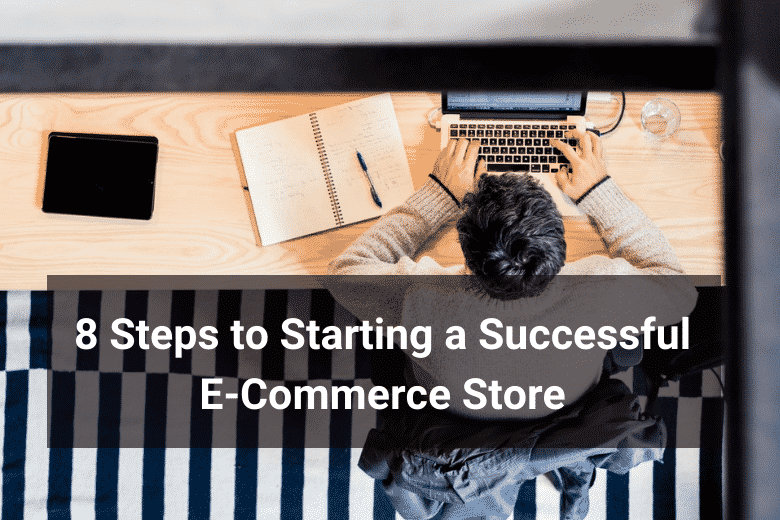Are you eager to get yourself set up in business selling things on the internet? E-Commerce allows you to create a virtual storefront where you’re in charge, and there’s no denying that it can be a rather lucrative business idea today with online shopping going from strength to strength. In the modern world where everybody wants to be their own boss, this kind of business is becoming more and more sought after. According to key statistics, retail e-commerce sales increased from $1.3 billion worldwide in 2014 to a whopping $3.5 billion this year, so there is certainly money to be made. But with e-commerce booming in popularity, being prepared to take on your competition has never been more essential. Here’s what you need to do to make sure that you are ready.
1. Make Sure You Know Enough:
It goes without saying that before anything else, it’s important to make sure that your knowledge, skills, and know-how are up to scratch before you dive into starting your own e-commerce business. The good news is that there are now more resources available than ever before to help you improve your knowledge of what it takes to be a successful e-commerce store owner. Resources like online blogs and e-books, as well as business mentoring and a range of online courses where you can learn about the various aspects of running a business online. Online courses might be the right option for you if you want to learn as you earn and get started setting up your company right away, or if you have full-time work commitments that you need to continue upholding before you can start your online shop. Use the Findcourses search engine to find training courses relevant to you.
2. Research Profitable Business Niches:
Choosing your e-commerce niche is probably one of the most important decisions that you will ever make at this stage of your company preparation, so it’s not one that should be taken lightly. The selection of your niche will play a fundamental role in not just the establishment of your online business, but also its future success and your success as an entrepreneur. And while it’s important to consider niches that are likely to be popular and make you a profit, it’s also worth making sure that you’re looking into niches that you enjoy and are passionate about personally. After all, running a successful e-commerce store takes a lot of time, effort and dedication, and you’re unlikely to want to put everything that it takes in if you don’t really care about what you are selling.
3. Understand Your Target Market:
Once you have decided what you are going to sell, it’s time to figure out who you are going to be selling it to. Understanding your target market is crucial from a variety of perspectives, as it will affect everything about how you run your store, from the design of your website to the way that you market and sell your products online. One of the best ways to do this is to do some research into buyer personas – this will give you a clearer picture of the type of person that your brand is going to be targeting and allow you to tailor your decisions to appeal to them the most.
4. Build and Establish Your Brand:
Once you know who your customers are going to be, building and establishing your brand will be easier as you will now have a clearer idea of what you need to do in order to entice them to explore more of what you have to offer and build a strong relationship between them and your brand. Bear in mind that while your brand name, logo, and colors are an essential part of your business, they are not the only crucial aspect of branding. Consider your brand ‘voice’, as this will be fundamental to how you interact with your customers and build strong, lasting relationships with them. Choosing the right brand voice essentially all boils down to who your target market are, and how they prefer to be communicated with.
5. Consider Shipping and Fulfillment:
Before you can get started with building your online store and listing all your products for sale, you’ll need to consider how you are going to fulfill and ship orders. There are several different options to choose from, and it will usually depend on the type of products that you are selling and how much business you expect to get. Dropshipping can be an ideal choice if you are just starting out and want to get a feel for things, as the product will be shipped to the customer directly from the suppliers, allowing you to save money by eliminating the need to buy and hold stock. On the other hand, if you’re looking to sell your own branded products, you may want to find a fulfillment provider to help you store your inventory. You’ll need to figure out how you’re going to deliver orders to customers. Floship can help you with that.
Floship is specialized in international, cross-border e-commerce order fulfillment. We can help you store, pick, pack and ship your incoming orders, on-demand, from our warehouses in Hong Kong or Shenzhen, China. For more information, feel free to reach out to us. No strings attached. We believe in a personal approach and a custom solution. Help us understand your business and we’ll provide you with a custom shipping strategy.
6. Create Your Online Store:
Once you have all the above basics covered, you can get started with creating your online store. There are several options when it comes to how you do this, but essentially you will need to ensure that your e-commerce website is the following:
- Modern
- Responsive
- Secure
If you’re setting up on a budget, then an e-commerce platform like Shopify, BigCommerce, or Shopblocks is an ideal choice as they offer affordable monthly plans with modern tools to create a responsive website that offers a great user experience. On the other hand, you can invest in a web development service and have a bespoke site created for your online shop – but this could cost you thousands of pounds, so it all comes down to how much you are prepared to invest.
7. Attract Your First Customers:
Now that your website is live and your products are listed for sale, you might be forgiven for thinking that the customers are just going to flock in – e-commerce is popular, right? But this isn’t usually the case – in fact, for many e-commerce store owners, the hard work starts now. You will need to implement a range of key marketing strategies to ensure that potential customers can not only find your online store, but are also encouraged to make a purchase. There are several things that you can do, but first of all it’s crucial to work on your website’s SEO for relevant keywords so that you’re appearing to potential customers searching Google for the kind of products that you sell. And, be highly active on social media – engage with customers using images, videos, blog posts, polls and more to increase your follower base and encourage visits to your store.
8. Build Your Reputation:
Finally, working to build and maintain a strong reputation should always be a top priority, no matter what stage you are at with your e-commerce store. Once you have gained your first customers, make sure that you are providing them with an excellent customer experience – not only will this provide them with a sense of security and loyalty that drives many customers to return, but it will also improve your chance of getting positive online reviews and recommendations.
What’s your e-commerce store idea? – We’d love to hear from you! h

Ready To Upgrade Your Logistic Solution?
Speak to Floship ecommerce logistic consultant about improving your global support chain today




